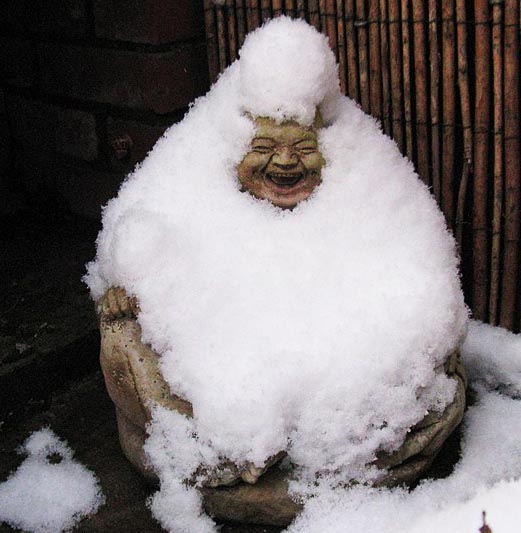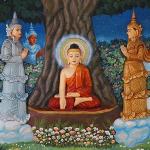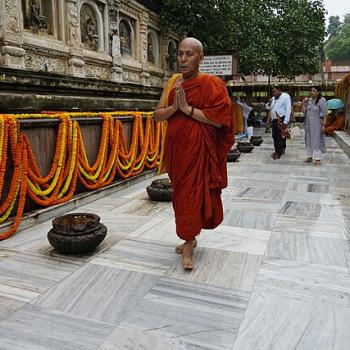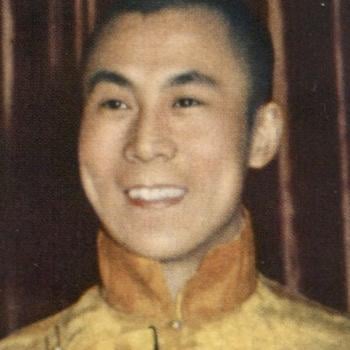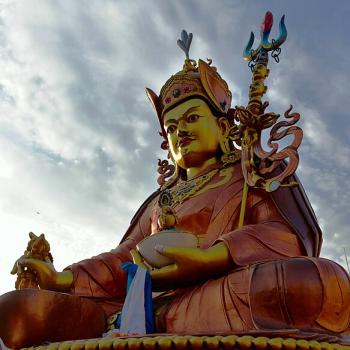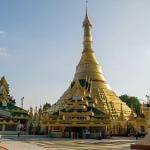The world’s many religions observe many holy days in December other than Christmas and Hanukkah. One December Buddhist holiday is Bodhi Day, which commemorates the enlightenment of the Buddha. (Bodhi is a Sanskrit word that means “awakening.”) Just about any web search will tell you that Bodhi Day is December 8.
But before you send a Happy Bodhi Day card to your Thai friends, note that this particular date and holiday generally applies only to Japanese Buddhism. In some parts of Asia the holiday is on the eighth day of the twelfth lunar month, and (as I write this) the next time that happens will be January 7, 2025. And in other parts of Asia the Buddha’s enlightenment is commemorated some time in the spring, along with his birthday and passing into final nirvana (parinirvana).
Japan adopted the Gregorian calendar in 1873 as part of the Meiji Restoration and chose standard calendar dates for special Buddhist days. It may be that Buddhists in other places are moving in the direction of fixed calendar dates also, but it hasn’t yet been done officially, I don’t believe.
Observing Bodhi Day
In the Japanese Zen tradition the day is called Rohatsu, which I understand means “the eighth day of the twelfth month.” In Zen monasteries around the world there will be a week-long, and silent, intensitve meditation retreat leading up to Rohatsu. Participants will meditate through the night of December 7-8. I have done Rohatsu retreats, and they do give new meaning to the word “intensive.” If this sounds like something you’d like to try, be advised you will need some less-intensive experience with Zen practice and retreats first. It’s not for beginners.
Bodhi Day is observed in a variety of ways in other traditions. It’s a time for studying and chanting sutras (scriptures), careful observance of Buddhist Precepts, and kindness toward all beings. The Buddha’s enlightenment is the foundation of the tradition, so Bodhi Day is a time to rededicate ourselves to living as the Buddha taught us to live. For more on the Buddha’s awakening, or enlightenment, please see “How Many Days Did Buddha Sit Under the Bodhi Tree?” See also “Shakyamuni’s Enlightenment & Ours: A Zen Priest Reflects on Bodhi Day” by James Ford.
Bodhi Day, Whenever
It’s also the case that Bodhi Day, whenever it’s held, is a strictly Mahayana holy day. Mahayana is the dominant form of Buddhism in east Asia — China, Korea, Taiwan, Japan. Vietnam is mostly Mahayana but has some Theravada also. Theravada Buddhism is the dominant form in Sri Lanka, Myanmar, Laos, Thailand, and Cambodia. The third major classification is Vajrayana, which takes in Tibetan Buddhism and a few other schools. See “The Quest for Original Buddhism” for a brief explanation of how these three divisions developed.
The Theravadins have folded all the primary events of the Buddha’s life into one really big holiday, called Vesak or Wesak. This commemorates the birth, enlightenment, and death — or passing into final Nirvana — of the Buddha. Vesak is the only Buddhist holiday recognized by the United Nations, so it’s a big deal. Vesak happens during the full moon of the fourth lunar month, which falls in the spring. The next Vesak is May 11 or 12, 2025, depending on country. In southeast Asian countries Vesak is both cultural and religious, and it is often a public holiday. Vesak is observed in a rich variety of ways. Temples and homes often are decorated with lights; people send Vesak cards to each other.
Tibetan Buddhists also observe the Buddha’s birth, enlightenment, and death all together in a holiday called Saga Dawa. The Tibetan lunar calendar doesn’t always line up with the rest of Asia, and Saga Dawa is often — although not always, I don’t think — a month after Vesak. Saga Dawa 2025 is on June 11.
Getting Back to December
There is another December Buddhist holiday called Unduvap Poya or Sanghamitta Day, which is observed by Buddhists in Sri Lanka. This one falls on December 15 in 2024. Unduvap Poya is determined by a lunar calendar, so the calendar date changes from year to year, but it seems to often fall in December. I understand some Buddhists who have moved away from Sri Lanka are now combining Unduvap Poya with Christmas.
Unduvap Poya commemorates the arrival in Sri Lanka of Princess Sanghamitta, daughter of Emperor Ashoka of India. The Princess, an ordained nun, came to establish a Buddhist nuns’ order in Sri Lanka. She also brought a sapling of the original Bodhi Tree under which the Buddha was sitting when he realized enlightenment. An ancient tree in Anuradhapura, Sri Lanka, is believed to be the tree that grew from that sapling, planted about 245 BCE.
And in Tibet …
Tibetan Buddhism appears to have several special days in December, all determined by lunar calendar. I see that Lama Tsongkhapa Day is on December 25 in 2024. Lama Tsongkhapa Losang Drakpa (1357–1419) was one of the great teachers of Tibet, and the day commemorates his passing into final nirvana. There is also a Dakini Day on December 25 to celebrate dakinis, iconic characters — sometimes called goddesses — who embody divinity and enlightenment in feminine form. There are several Dakini Days every year, I believe.
